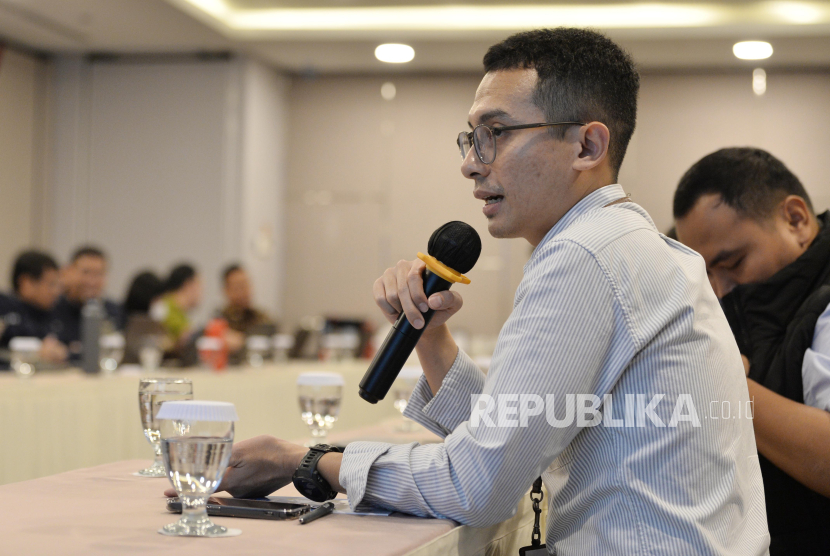REPUBLIKA.CO.ID, JAKARTA -- Vice President ESG Product & Portfolio Management PT Bank Mandiri (Persero) Tbk, Abdul Rahmaan Fauzi also presented as a speaker at the FGD 'ESG Rembuk for Indonesia' at the Indonesia Stock Exchange Building, Jakarta, Thursday (4/4) 7/2024). This FGD started the series of activities of Republika 'Sehati for the Earth'.
On this occasion, Abdul confirmed, his company also focused on implementing aspects of sustainable business development for the long term. Bank Mandiri is serious about using Digital Carbon Tracking platform as a form of transparency of information on greenhouse gas (GHG) emissions from company operations. This is proof that SOEs are also concerned about environmental, social, and governance (ESG). Although in practice, it still takes a legal umbrella from regulators to regulate it.
“If we look at the long term, then we should not miss out, because it is still a challenge,” Abdul said.
He explained that Bank Mandiri is a service company. As one of the largest banks in the country, Bank Mandiri certainly gets the spotlight in every activity. So it can not be detached from the question related to the application of ESG. Bank Mandiri, Abdul has always discussed with regulators about business development.
“But on the record here, the bank is also (its legal umbrella) from regulators. So any new activity should also get the rules first from the OJK,” he said.
The Digital Carbon Tracking platform closely monitors and records the carbon emission reduction performance at Bank Mandiri in a transparent manner. Recording This applies to all units of Bank Mandiri in the country, from the central, regional, to branch level.
Transparency and accountability in the implementation of the platform is also a priority. On top of that, this platform dashboard access is accessible to the public via the link: https://esg.bankmandiri.co.id/ so that interested stakeholders can monitor it directly.
The platform works by monitoring three emission scopes. The first coverage relates to fuel consumption (fuel). The second coverage relates to the purchase of electricity. Meanwhile, for the third scope, namely business travel activities of Bank Mandiri employees using aircraft.
These three emission scopes have been adapted to the Greenhouse Gas (GHG) Protocol, a greenhouse gas emissions accounting and reporting standard developed by the World Resources Institute (WRI) alongside the World Business Council of Sustainable Development (WBCSD) .GHG Protocol helps a business unit or organization to measure, manage, and report GHG emissions from their respective corporate operations.
Measurements to GHG emissions were made in the first coverage derived from fuel use on 4,353 vehicles. The second coverage comes from electricity consumption in 2,232 branch offices spread across Indonesia and reporting is done monthly through Bank Mandiri's website. While for annual reporting it can be accessed via sustainability reports.
Bank Mandiri continues to strive for sustainable measures in its operations, in line with the vision to become “Indonesia's Sustainability Champion for a Better Future”. Establishment of Digital Carbon Tracking platform to achieve NZE in Operations target by 2030 as part of fulfilling Sustainable Operation pillar within ESG Bank Mandiri framework.


